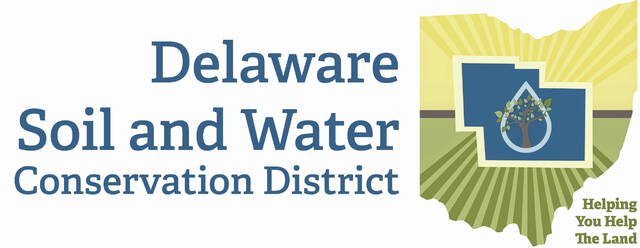
As the housing market continues to boom in Delaware County, it’s still important to take a few considerations in mind before signing on the dotted line. We all have heard the phrase, “buyer beware,” but many of us do not know what type of research to do when looking at a new property, nor what resources are available to us. Part of what we do at Delaware SWCD is respond to landowner requests for assistance and advice related to natural resource issues like flooding, erosion and poor drainage. By knowing what to look out for, you can make a sound decision and avoid potentially costly mistakes.
Knowing the property boundaries and respecting private property rights are an important first step when potentially buying land. Property lines are generally denoted with pins, but these can shift over time or be moved when projects occurred in the area. Many people call with property questions, only for us to determine that the property they are concerned with doesn’t legally belong to them, or that neighbors have potentially encroached on their property. This is especially important when considering permanent land alterations like tree clearings or starting construction on a building or house.
Knowing what would be included with your deed is another important factor in land buying. There could be easements, covenants, or restrictions on the deed. If so, who holds it and what does it cover or limit? Common easement types in Delaware County include sanitary sewer, drainage, and both above and below ground utilities. Would you be located within a historic district? A historic district has architectural standards to preserve its character along with an application process for renovations and new construction.
Would you belong to a homeowner’s association (HOA)? HOAs vary in their bylaws and the responsibilities they require of the HOA members, as well as the fees and restrictions they impose. These are all things that could potentially “come with the property” that have the potential to significantly impact what modifications you are allowed to make on the property.
Knowing the drainage of the property, both above the ground and below the ground is something that many buyers do not consider; we field a lot of calls after land has been purchased. Something to consider for existing homes, where do the downspouts and sump pump outlet? Is there any drainage tile present? Is there a cistern? For lots that have a pond, where do the pond overflows go? For all lots, is there a creek or stream running through the site? Does any part of the property lie in the floodplain? What kind of soil conditions are on the property? Is there any visible erosion or areas with standing water? Lots that have very little elevation change across the property have limited options to address drainage issues unless an outside outlet such as tile or a drainage ditch exists. These things are critical to take into consideration as they could not only effect an existing structure or home, but could determine the suitability or extra measures needed when considering a new home build.
There are many resources available to potential buyers to research the property they are considering to make sure that it is the best fit. The Delaware County Auditor has a free and informative website that is searchable by parcel number, landowner, or street address. Once you locate the site you wish to research, a wealth of information is available. Check out the Layers tab (top right) to discover soils, contour lines, school district, jurisdictional boundaries, and much more.
Another great free resource is the web soil survey by the U.S. Department of Agriculture’s Natural Resources Conservation Service at websoilsurvey.nrcs.usda.gov. Learn about the soils found and the suitability of those soils for a particular use. For the most part, Delaware County is relatively flat with poorly drained soils. Knowing the different soils present on your prospective site will help you understand any limitations and what best management practices might be needed to overcome those limitations and create your vision of the perfect home.
It is critical that you understand the drainage of the property, natural and manmade, so that you can avoid water-related issues. The Delaware Soil and Water Conservation District can assist as well. Please visit our website at SoilAndWater.co.delaware.oh.us or call us at 740-368-1921, it could potentially save you time, money, and frustration by being better informed.


